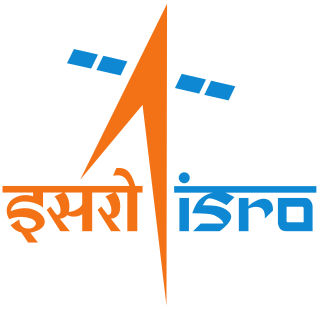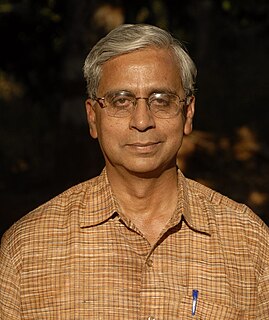
Arunachal Pradesh is one of the 29 states of India and is the northeastern-most state of the country. Arunachal Pradesh borders the states of Assam and Nagaland to the south and shares international borders with Bhutan in the west, Myanmar in the east and is separated from China in the north by the McMahon Line. Itanagar is the capital of the state.

Tripura is a state in northeastern India. The third-smallest state in the country, it covers 10,491 km2 (4,051 sq mi) and is bordered by Bangladesh to the north, south, and west, and the Indian states of Assam and Mizoram to the east. In 2011 the state had 3,671,032 residents, constituting 0.3% of the country's population.
The Sangh Parivar refers, as an umbrella term, to the collection of Hindu nationalist organisations spawned by the Rashtriya Swayamsevak Sangh (RSS) and remain affiliated to it. These include the political party Bharatiya Janata Party, religious organisation Vishva Hindu Parishad, students union Akhil Bharatiya Vidyarthi Parishad, and the worker's union Bharatiya Kishan Sangh. It is also often taken to include allied organisations such as the Shiv Sena, which share the ideology of the RSS. The Sangh Parivar represents the Hindu nationalist movement of India.

Nagaland is a state in northeastern India. It borders the state of Assam to the west, Arunachal Pradesh and Assam to the north, Myanmar to the east, and Manipur to the south. The state capital is Kohima, and the largest city is Dimapur. It has an area of 16,579 square kilometres (6,401 sq mi) with a population of 1,980,602 per the 2011 Census of India, making it one of the smallest states of India.

Praful Manoharbhai Patel is an Indian politician and businessman. His father, Manoharbhai Patel, was a Nationalist Congress Party leader who was elected to represent Gondia district in Maharashtra. Patel graduated with a Bachelor of Commerce degree from the University of Bombay and married Varsha Patel, a Gujarati businessman's daughter. His political career began in 1991 and he was appointed the Civil Aviation Minister in 2004. His family runs the CeeJay group, a large tobacco conglomerate in India.

The Indian Space Research Organisation is the space agency of the Government of India headquartered in the city of Bengaluru. Its vision is to "harness space technology for national development while pursuing space science research and planetary exploration." The Indian National Committee for Space Research (INCOSPAR) was established in the tenure of Jawaharlal Nehru under the DAE in 1962, with the urging of scientist Vikram Sarabhai recognizing the need in space research. INCOSPAR grew and became ISRO in 1969, also under the Department of Atomic Energy (DAE). In 1972 Government of India setup a Space Commission and the Department of Space (DOS), bringing ISRO under the DOS. The establishment of ISRO thus institutionalized space research activities in India. It is managed by the Department of Space, which reports to the Prime Minister of India.

Adivasi is the collective term for the indigenous peoples of India. In India, Schedule Tribe referred as Adivasi although the term indigenous and tribe have different meanings, indigenous means descent from populations, who inhabited the country or region at the time of conquest, colonisation and tribe means who are distinguished by their social, cultural and economic conditions from other sections of the community. Scheduled Tribes make up 8.6% of India's population, or 104 million people, according to the 2011 census, and a large percentage of the Nepalese population. They comprise a substantial minority population of India and Nepal and a minority group of the Sri Lankan society called the Vedda. The same term Adivasi is used for the ethnic minorities of Bangladesh and the native Tharu people of Nepal. The word is also used in the same sense in Nepal, as is another word, janajati, although the political context differed historically under the Shah and Rana dynasties.
Ho is a Munda language of the Austroasiatic language family spoken primarily in India by about 1.04 million people per the 2001 census. Ho is a very old tribal language. It is spoken by the Ho, Munda, Kolha and Kol tribal communities of Odisha, Jharkhand, Bihar, Chhattisgarh, West Bengal, Assam and is written with the Warang Citi script. Devanagari, Latin script, Oriya script, Telugu script, and Bengali script are sometimes used, although native speakers are said to prefer a Ho script.The latter script was invented by Ott Guru Kol Lako Bodra

The history of Mizoram basically encompasses the history of Mizoram which lies in the remotest part of northeast India. It is a conglomerate history of several ethnic groups of Chin people who migrated from Chin State of Burma. But information of their patterns of westward migration are based on oral history and archaeological inferences, hence nothing definite can be said. The recorded history started relatively recently around the mid-19th century when the adjoining regions were occupied by the British monarchy. The land is now inhabited by a mixture of people from Chin Hills and Bangladesh and its history is therefore largely reflected by those of Lusei, Hmar, Lai, Mara and Chakmas tribes. Following religious, political and cultural revolutions in the mid-20th century majority of the people agglomerated into a super tribe, Mizo. Hence the officially recognised settlement of the Mizos became Mizoram.

Saint Augustine's University is a private historically black college in Raleigh, North Carolina. It was founded by Episcopal clergy in 1867 for the education of freed slaves.

East India is a region of India consisting of the Indian states of Bihar, Jharkhand, West Bengal, Odisha and also the union territory Andaman and Nicobar Islands. West Bengal's capital Kolkata is the largest city of this region. The Kolkata Metropolitan Area is the country's third largest.
Ryan International Schools are a group of private educational institutions in India that were founded in 1976 by Dr. Augustine Francis Pinto. The Ryan Group started its first school in Mumbai in 1976 and currently has 135+ schools located in India, along with international footprints in many countries. The group is in collaboration with universities in USA, UK, Germany, France, Switzerland, Australia to facilitate learning across global boundaries.

Dr. Hanumappa Sudarshan is an Indian social worker and tribal rights activist. He is well known for his contributions to the upliftment of the forest dwelling tribes in the Chamarajanagar district of Karnataka. He is also a recipient of the Right Livelihood Award and the Padma Shri.

The Augustine Band of Cahuilla Indians is a federally recognized Cahuilla band of Native Americans based in Coachella, California. They are one of the smallest tribal nation in the United States, consisting of only eight members, only one of whom is an adult. As of the 2010 census, the tribe had expanded its members to eleven.

Ramakrishna Mission Vivekananda Educational and Research Institute, formerly Ramakrishna Mission Vivekananda University or simply Vivekananda University, is a deemed university headquartered at Belur, West Bengal, with campuses spanning multiple states in India. Established with the idea of actualizing Swami Vivekananda's vision of education, the Institute is administered by the Ramakrishna Mission.

Abhay Bang and Rani Bang are Indian social activists and researchers working in the field of community health in the Gadchiroli district of Maharashtra, India. They have revolutionized healthcare for the poorest people in India and have overseen a programme that has substantially reduced infant mortality rates in one of the most poverty-stricken areas in the world. The World Health Organization (WHO) and UNICEF have endorsed their approach to treating newborn babies and the programme is currently being rolled out across India and in parts of Africa. The Bangs founded the 'Society For Education, Action and Research in Community Health' (SEARCH) – a non-profit organisation, which is involved in rural health service and research. The couple is the winner of the Maharashtra Bhushan Award. Sanjay Gandhi Postgraduate Institute of Medical Sciences, Lucknow has conferred honorary doctorates on Abhay and Rani Bang. SNDT Women's University, Mumbai has also awarded Honoris Causa to Rani Bang. The Lancet has honoured the couple as 'the pioneers of health care in rural India'. Abhay and Rani Bang are the first recipients of the Distinguished Alumni Award from the Department of International Health at the Johns Hopkins Bloomberg School of Public Health. They were also inducted into the Johns Hopkins Society of Scholars. The Bangs are honoured for their leadership in community-based health care that is now helping to save the lives of millions of the most vulnerable newborns and children. During their careers, the Bangs have helped foster a renaissance in community-based primary health care. In 2016, Johns Hopkins University conferred the Distinguished Alumni Award upon them.

Christians are an ethno-religious community residing in the Indian state of Jharkhand. As per 2011 Census of India, 4.3% of people in Jharkhand are Christians. Christians are majority in Simdega district of Jharkhand.
Frederick William Savidge was a pioneer English Christian missionary in northeast India. He and James Herbert Lorrain brought Protestantism to Mizoram, and some parts of Assam and Arunachal Pradesh. Together they were entirely responsible for the creation of written language in Mizo, beginning of literacy, origin of formal education and establishment of churches in Mizoram. They devised the original Mizo alphabets based on Roman script, prepared the first book and dictionary in Mizo, started the first school among the Mizos. Mizoram has become the most Christian populated state in India. As a professional educator Savidge was single-handedly responsible for introducing quality education in Mizoram. He is deservedly known as the Father of Mizo Education.

Swachh Bharat Abhiyan (SBA) or Swachh Bharat Mission (SBM) is a nation-wide campaign in India for the period 2014 to 2019 that aims to clean up the streets, roads and infrastructure of India's cities, towns, and rural areas. The campaign's official name is in Hindi and translates to "Clean India Mission" in English. The objectives of Swachh Bharat include eliminating open defecation through the construction of household-owned and community-owned toilets and establishing an accountable mechanism of monitoring toilet use. Run by the Government of India, the mission aims to achieve an "open-defecation free" (ODF) India by 2 October 2019, the 150th anniversary of the birth of Mahatma Gandhi, by constructing 90 million toilets in rural India at a projected cost of ₹1.96 lakh crore. The mission will also contribute to India reaching Sustainable Development Goal 6, established by the UN in 2015.
Dr. Ramaswami Balasubramaniam (Balu) is a development scholar, author, public policy advocate, leadership trainer and activist, known for his pioneering development work with rural and tribal people in Saragur of Heggadadevana kote taluk, near Mysore in Karnataka, India. He founded Swami Vivekananda Youth Movement (SVYM), a development organization based in Saragur when he was 19. After spending 26 years in development work among rural and tribal people, he pursued academic degrees in leadership, organisational development and public policy. He was the Frank H T Rhodes Professor at Cornell University between 2012 and 2014, and continues to hold academic positions in other universities. His book I, the citizen is a compilation of narratives and reflections of a development activist and was released in 2015 by the Prime Minister's office. He is also the Chairman of Grassroots Research And Advocacy Movement (GRAAM)at Vivekananda Institute for Leadership Development, Mysore.

















